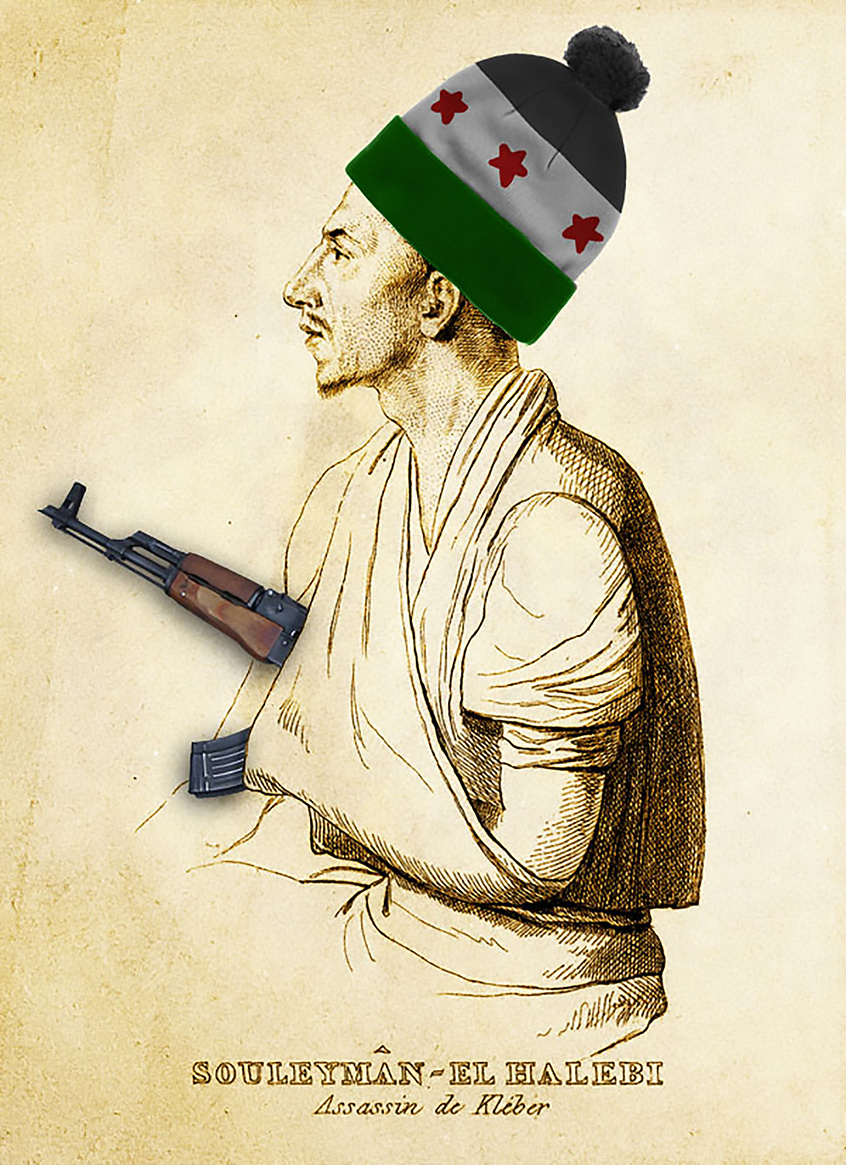In the spring of 2011, Syrians rose up against a dictatorship inherited from another era. Schoolchildren wrote “The emperor wears no clothes!” on the walls. Young people streamed into the streets and onto the social networks calling for dignity and freedom. Citizens from every walk of life dreamt about living in harmony with the world. One could sense a yearning for the universal democratic ideal, fed simultaneously by the demographic transformation taking place in Syrian society. This revealed an ordinary society, a world away from the phantoms conjured by the regime, and those who prophesied a “clash of civilizations.”
The rest, so to speak, is history. Bashar al-Assad put in place a media blackout, then let loose his military on rebellious fellow citizens he described as “germs.” He released from his prisons the jihadists who now control the main Islamist militias while striving to stamp out the revolution’s secular supporters. His attacks on villages and cities have been unrelenting, using tanks, aircraft, rockets, barrel bombs, and chemical weapons. He has done his best to prevent Syrian society from freeing itself from the tutelage of a regime founded by his father after a coup in 1970.
But how did it come about that the image of Syrian society depicted in the media fails to reflect its socio-demographic reality, and instead repeats the storytelling of the regime and the rhetoric of a clash of civilizations? Why is al-Assad, despite being accused of war crimes, always allowed to appear dressed in a suit like a gentleman—and to thereby offer himself as an alternative to the “swarms” of refugees and the jihadist hordes to which Syrian society is otherwise reduced?
These are the questions that preoccupy us as Syrian filmmakers engaged in our revolution, but these questions also concern citizens the world over. A regime has set out to systematically destroy its society under the watchful gaze of the media, which broadcasts images of this crime more or less live. And the head of state has the world’s screens at his disposal, ready to defend his point of view, to project an image of dignity—while hundreds of thousands of his victims are denied that very right.
In other words, the screens that shape public and private life have reflected the views of a criminal state for years. Here we see the banalization of evil, and it is all the more insidious because it doesn’t come as part of a racist ideology, as in the time of the Third Reich, but rather in the name of the bland sympathy that has become a kind of universal religion.
To prevent the poor Syrians from dying in complete silence, it is thought reasonable that their maltreated, dignity-robbed bodies are put on display. TV channels broadcast the images that both victims and executioners post on YouTube with opposite aims—the victims, because they are calling for help; the executioners, to sow terror. Given the prospect of huge audience ratings, the media industry immediately invests in the production of these sensational images. They can rely on cameramen taken on as subcontractors, who boast the twin advantages of being both good natives and able to boost ratings cheaply. This is how a European broadcaster produced the documentary film Syria Self-Portrait, which reduces Syrian society to the bodies robbed of their dignity found in YouTube videos.
No one seems bothered by this twin attack on human dignity and Syrians’ right to self-determination. No commission or advisory committee or media watchdog has yet to comment on the shameless broadcasting of the bodies of slain Syrians—which would be unthinkable if the victims were American, French, or Belgian.
This means one of two things. Either there is no longer an “inherent dignity of… all members of the human family,” in which case the preamble of the Universal Declaration of Human Rights should be amended accordingly; or the human family doesn’t realize the pit it has been dragged into by the media industry, which bears ultimate responsibility for these images.
It is hard for us, mired in this pit, to judge which of the two assumptions is correct. For this reason, we are appealing to the citizens of this world: the time has come to seize the weapons of art, cinema, and journalism in order to protect society and to allow it to produce its own image beyond power’s grasp. The scales must be shifted in such a way that there is a right to one’s own image that is based on the principle of human dignity and the right to self-determination. The media must no longer be allowed to exploit the way a community of human beings is represented so as to benefit a state or the advertisers of household appliances.
This text also appeared in Die Zeit, Dagens Nyheter, and Libération.


